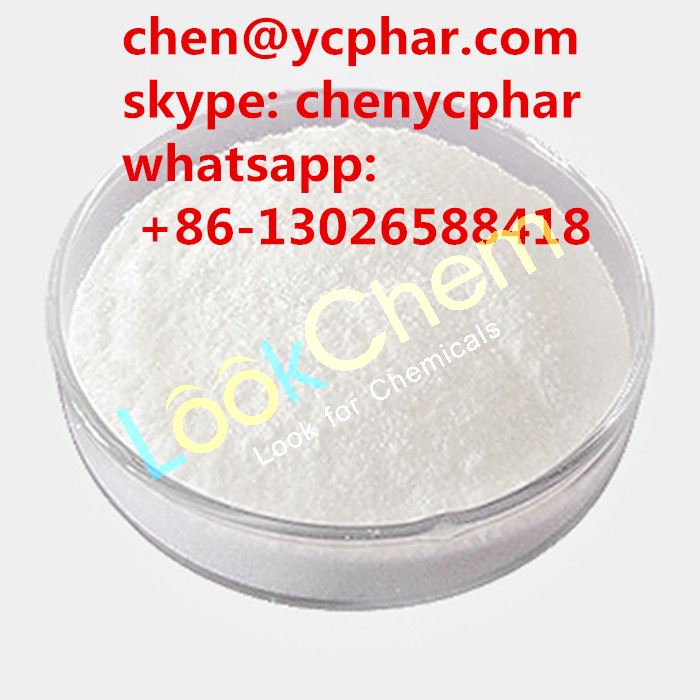Estradiol enanthate
Product Description:
Estradiol Enanthate
CAS Number: 4956-37-0
Purity: 99.5%
Molecular Weight: 384.556
Molecular Formula: C25H36O3
Appearance: Crystalline powder
Physical State: Solid
Solubility: Soluble in water (slightly).
Storage: Store at room temperature
Melting Point: 94-96 ° C
Boiling Point: ~509.5 ° C at 760 mmHg (Predicted)
Density: ~1.1 g/cm3 (Predicted)
Description:
Estradiol enanthate (INN, USAN), or estradiol enantate, is a synthetic ester, specifically the 17-heptanoyl ester, of the natural estrogen, estradiol. It is marketed under the brand names Anafertin, Deladroxate, Perlutan, and Topasel, which are combination formulations of estradiol enanthate and dihydroxyprogesterone acetophenide, as a once-monthly injectable hormonal contraceptive in Spain and Latin America, and has been used as such since at least the mid-1960s.
Estradiol, or more precisely, 17β-estradiol, is a human sex hormone and steroid, and the primary female sex hormone. It is named for and is important in the regulation of the estrous and menstrual female reproductive cycles. Estradiol is essential for the development and maintenance of female reproductive tissues but it also has important effects in many other tissues including bone. While estrogen levels in men are lower compared to women, estrogens have essential functions in men as well. Estradiol is found in most vertebrates as well as many crustaceans, insects, fish, and other animal species.
Estradiol or oestradiol (American or British English usages), derives from estra-, Gk. οστρο (oistros, literally meaning "verve or inspiration") and -diol, a chemical name and suffix indicating that this form of steroid and sex hormone is a type of alcohol bearing two hydroxyl groups.
Estradiol is produced especially within the follicles of female ovaries, but also in other endocrine (i.e., hormone-producing) and non-endocrine tissues (e.g., including fat, liver, adrenal, breast, and neural tissues). Estradiol is biosynthesized from progesterone (arrived at in two steps from cholesterol, via intermediate pregnenolone). One principle pathway then converts progesterone to its 17-hydroxy-derivative, and then to androstenedione via sequential cytochrome P450-catalyzed oxidations.Action of aromatase on this dione generates estrone, and action of a dehydrogenase on this gives the title compound, 17β-estradiol.
Function:
Hormones and Regulation of Endocrine Function of Drug, Nutritional Therapeutics, Antibiotic and Antimicrobial Agents, Antiparasitic, Original Drug Resistant Microbes, Immune System Drugs, Specialist Drugs, Drug Detoxification, Diagnostic Agents, Blood System Agents, Visceral System Medication, Central Nervous System Agents, Cardiovascular Agents, Urinary System Agents, Respiratory System Agents.
A chemical derivative of estradiol, ethinyl estradiol with maximum dosage 200 µg, is a major component of hormonal contraceptive devices. Combined forms of hormonal contraception contain ethinyl estradiol and a progestin, which both contribute to the inhibition of GnRH, LH, and FSH, which accounts for the ability of these birth control methods to prevent ovulation and thus prevent pregnancy. Other types of hormonal birth control contain only progestins and no ethinyl estradiol.


![]() China (Mainland)
China (Mainland)